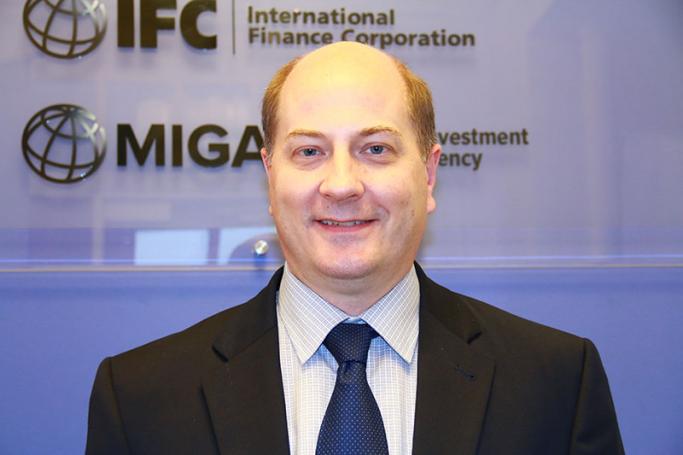The World Bank is optimistic about the progress being made with Myanmar economy and business sector.
Mizzima’s Aung Thura sat down with Charles Schneider, senior private sector specialist, World Bank, to discuss progress.
How does Myanmar’s economy look today?
I think there is a lot to be optimistic about in this year’s Doing Business Report. This is the fourth year now that Myanmar has been included in the Doing Business rankings. Actually it has moved up over those four years quite well. Some of the key areas where there have been improvements have been around supporting small and medium enterprises and local businesses, in terms of how they start their business, how they register and incorporate. That has improved significantly in the last three years and in fact last year, Myanmar was the number one global reformer in that area. So Myanmar reformed the most of any country in the world over the last two years when it comes to the starting a business part of the Doing Business Report. So these areas are doing very well.
We are starting to see improvements in the access to the finance area that improved this year. It is now getting easier for firms to access finance, to borrow. That is also very important for small and medium enterprises in the country. So these are very good signs.
I think another good sign is how serious the government is taking the Doing Business Report overall, how much emphasis and focus they have been putting on trying to improve the indicators in the report and to try to understand and how to improve.
What does the new government need to improve public sector development?
The important thing for the government to do continue strong coordination across the various ministries for the reforms. Very few of the reforms that take place in an economy are the sole responsibility of one line ministry or one agency. Typically reform takes many players. A firm deals with many ministries and many different agencies. So am important part of the reform process is a very strong coordination function and body to do that. There has been a body set up called the Special Task Force for Business and Trade Promotion, which is a coordinating body to see how the reforms can be done better, especially related to the Doing Business indicators. That can be strengthened, that can be elevated to a higher level, get higher level officials involved. And I think that would be one recommendation for how to improve that.
We see in neighbouring countries like Malaysia that they have been successful in establishing a body called Pemuda, which really reports to the highest levels of government and has very strong coordinating functions. In addition to this, the opportunity for the government to do more public-private dialogue is important. The Myanmar Business Forum has been established and has been an effective tool already to date for the private sector to communicate in a formal structured way with the government. And I would really suggest the government to continue to use the Myanmar Business Forum and even strengthen it more as another tool to improve the business environment.
How do you view the government’s economic policy?
I think this is very positive. It is great that the government is coming out now with clear economic policies and I think the target areas are the right ones. The areas focus on important sectors, like agribusiness and agriculture, but also focus on how do we improve the business-enabling environment for the private sector. A lot of what was in the policy is focused on areas that do need improvement, for example around trade, as we see much more trade volume taking place in the country, much more importing, much more exporting. There are now becoming issues around the ports to manage the container traffic, and that was picked up in this year’s Doing Business Report as one area in need of improvement is reducing congestion, and the way to do that is through much more automation and customs and also through much quicker processing and clearing of the cargo that come and out of the country. And this requires systems and risk management and procedures, and I think the government is starting to look at those and the World Bank Group would be very happy to support that effort of the government.
How does the World Bank’s annual Doing Business Report contribute to the Myanmar economy?
I would add that using tools like the Doing Business Report, other reports that have come out, focused on logistics that the World Bank Group also publishes, the World Economic Forum indicators, I think these are important tools that the government should continue to use. They give a way to compare how Myanmar is doing compared with other countries. They provide an ability for Myanmar government to set targets. Where do you want to be in these indicators and these rankings in the future? I think it is something you can work around, rally around, and can be a very effective tool to identify first the key priorities for reform and second again for targeting and coordinating the reform process.
You are viewing the old site.
Please update your bookmark to https://eng.mizzima.com.
Mizzima Weekly Magazine Issue...
14 December 2023
Spring Revolution Daily News f...
13 December 2023
New UK Burma sanctions welcome...
13 December 2023
Spring Revolution Daily News f...
12 December 2023
Spring Revolution Daily News f...
11 December 2023
Spring Revolution Daily News f...
08 December 2023
Spring Revolution Daily News f...
07 December 2023
Diaspora journalists increasin...
07 December 2023












